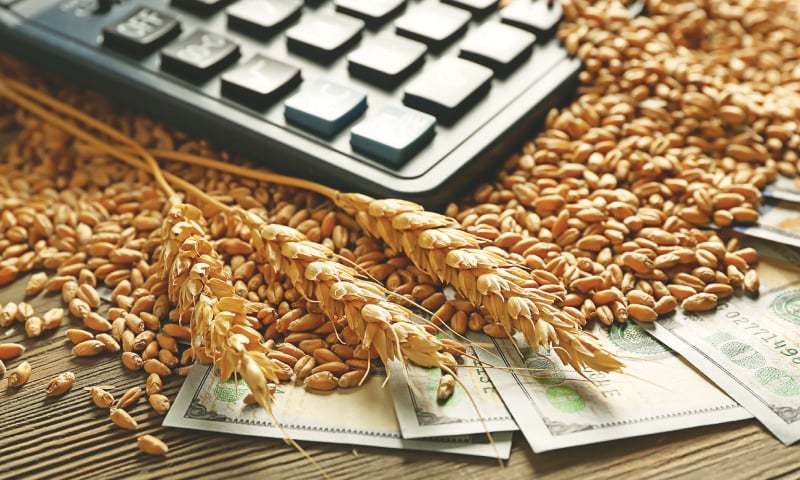ISLAMABAD: The Ministry of National Food Security and Research said on Monday that it was working to ensure supply of wheat at affordable prices.
The ministry said in a statement that a gap of 1.411 million tonnes had been identified in the availability and consumption of wheat as per the estimates of provincial crop reporting services.
A strategy is being designed in consultation with the provinces considering the concerns expressed by importers, in addition to the steps taken for releases from the public sector.
The stock of public sector is being audited during the end of season, while the provincial governments have promulgated anti-hoarding law to ensure wheat procurement drive and achieve their procurement targets.
Says provincial strategy restricted movement of wheat, created panic in market
This strategy of the provinces not only restricted wheat and wheat seed movement but also created panic in the local market. Resultantly, wheat price escalation was observed, even during the months of its procurement, according to the ministry.
In order to ensure food security of the country, the national food security ministry is mandated to arrange the requisite supply of wheat within the country. The Pakistan Agricultural Storage and Services Corporation, an attached organisation of the ministry, is working continuously to supply wheat to the wheat-deficit areas.
Punjab has started stocking wheat at the release price, whereas the Sindh government has also been contacted to announce its wheat release policy.
Meanwhile, presiding over a meeting, Minister for National Food Security and Research Syed Fakhr Imam said that his ministry was dealing with economic coordination and planning in respect of food, economic planning and policy making vis-a-vis agriculture.
Presenting a comprehensive overview of the ministry, National Food Security and Research Secretary Omar Hamid Khan said the ministry was mainly responsible for policy formulation, economic coordination and planning in respect of food grain and agriculture.
It also included procurement of food grains, fertiliser, import price stabilisation of agriculture produce, international liaison and economic studies for framing agricultural policies, he said.
The meeting discussed the performance of the Pakistan Central Cotton Committee, particularly its focus on improvement and development of growing, marketing and manufacturing of cotton and cotton byproducts, through an extensive programme of research and development in all its conceivable aspects.
Published in Dawn, July 21st, 2020














































